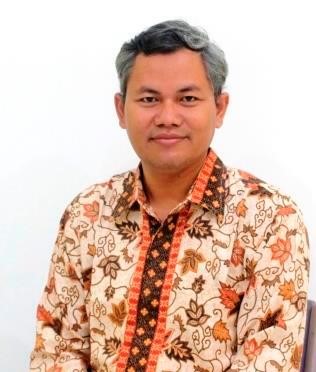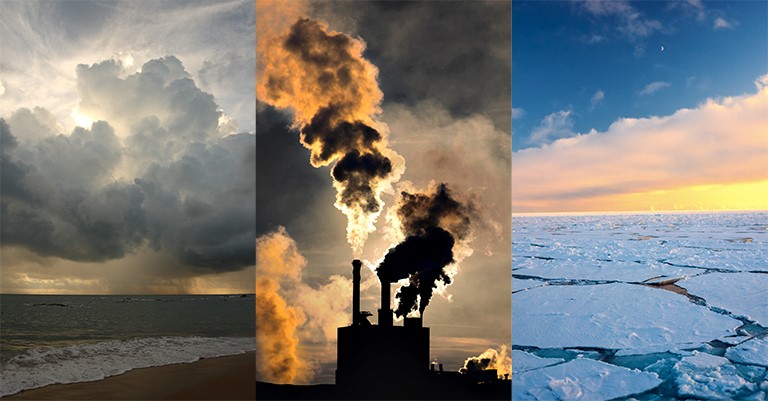UNAIR NEWS – In a high-level climate change conference (Leaders Summit on Climate) 2021 held on 21st of April, Indonesia declared its support and will also take part in the United Nation Framework Convention on Climate Change – The 26th Conference of the Parties (UNFCCC – COP) in Glasgow next November.
Before the conference held in November, World Meteorological Organisation (WMO) issued a report that there may be a 40% possibility that the earth’s temperature will rise by 1.5 Celcius by 2025.
According to a Biology lecturer of UNAIR’s Faculty of Science and Technology (FST), Dr. Eko Prasetyo Kuncoro, S.T., DEA, the rise of the earth’s temperature will adversely impact the biosphere, especially humans. “With the rise of earth’s temperature, it will cause ice melting in the poles, rising sea level, and this temperature rise will also cause climate change,” said Dr. Eko.
Dr. Eko mentioned that climate change has many consequences. “Climate that is usually stable will shift and will collude our understanding of climate”, he added.
According to Dr. Eko, this obscurity will cause unpredictable natural disasters such as flooding, hurricane, La Nina, drought, and other correlated consequences.

A Biology lecturer of UNAIR’s Faculty of Science and Technology (FST), Dr. Eko Prasetyo Kuncoro, S.T., DEA
The cause of the earth’s rising temperature
Conferences about the environment always talk about global warming. According to Dr. Eko, the cause of global warming is Carbon dioxide emission. “This emission is produced by human and natural activity, for example, the use of fossil fuel that is harmful to the environment,” added Dr. Eko.
He also explained that fossil-fuel emission produces Carbon dioxide (Co2). The carbon dioxide then has the capability to hold heat and cause the temperature to rise.
Furthermore, Dr. Eko also said that the use of transportation also adds to carbon emissions. The degradation and decomposition of waste can even contribute to carbon dioxide emissions.
“Apart from industry, farming, and transportation, anything that releases greenhouse gases such as Co2, CH4 (Methane), Nitrogen Oxide (NO2) may also contribute to global warming” stated Dr. Eko.
Balancing the earth
On this occasion, Dr.Eko said that global warming is an event that proved the imbalance on earth. He said that greenhouse gases continuously produced are stuck in the atmosphere for a long period of time.
“The production (greenhouse gases, ed) is continuous but it takes a long time to be degraded, so there is an imbalance between the production line and degradation line,” explained Dr. Eko.
According to him, there are two ways to reduce greenhouse gases in the atmosphere, a clean-up, and prevention.
“The greenhouse gases that exist now have to be cleaned up, we apply a treatment to it, but the better way is if we apply a preventive strategy,” said Dr. Eko.
Preventive action that we can do according to Dr. Eko is to shift from the use of fossil fuel to more eco-friendly energy. Apart from that, we also have to pay attention to the management of organic waste, and other kind of wastes that produce carbon dioxide.
Forest potential for balancing the earth
Dr. Eko said that the Indonesian forest has a high potential to be a balancer in this context because trees can absorb carbon dioxide to safeguard the earth’s temperature.
“Plants inside the forest is good, mangrove is even better because it absorbs carbon dioxide and convert them into the form of energy,” added Dr. Eko.
Dr. Eko said that there are many things that we can do in order to safeguard the earth’s temperature, one of them starts from ourselves. For example, we may use a more eco-friendly energy source, efficient in using energy, use public transport, manage our waste disposal, and also planting more trees.
“Changing our old habits, and mindset from treating our waste to preventing the build-up of waste,” concluded Dr. Eko.
Author: Tata Ferliana
Editor : Binti Q. Masruroh (AC/AP)





